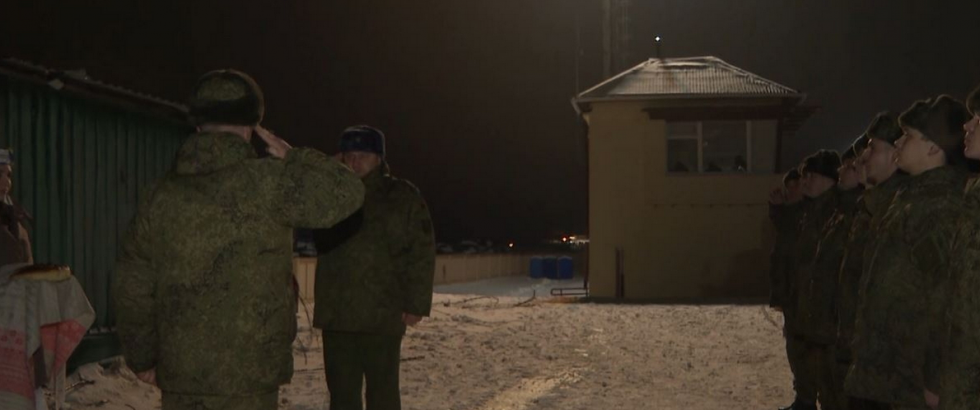Minsk sends conflicting signals about the expanding Russian military presence
 The situation got worse
The situation got worse

Belarusian sources issued contradictory statements regarding Russian troops’ withdrawal timing following the joint exercise “Allied Resolve-2022”.
Although it was initially stated that after the end of the unscheduled Belarusian-Russian “Allied Resolve-2022” exercises, the entire Russian contingent would return to Russia, the prospects for this appeared ambiguous at the end of last week.
Minister of Foreign Affairs of Belarus Vladimir Makei and the Russian Ministry of Defence representative, Igor Konashenkov, claimed that following “Allied Resolve”, all Russian troops would leave Belarus. However, Lukashenka stated that he and Vladimir Putin would decide this matter separately. Minsk is interested in ensuring that some of the weapons systems (in particular, S-400 air defence systems) remain within the framework of the previously established joint training and combat centre or based on another agreement. The possibility of formalising a permanent Russian presence in Belarus in the form of a military base remains, however, categorically rejected.
Obviously, the retention of Russian troops and equipment participating in “Allied Resolve” was subject to negotiations between Minsk and the Kremlin. The Belarusian regime, therefore:
- demonstrates to the Kremlin military-political loyalty, which ensures continuing Russian financial support in light of the current regional situation.
- uses Russian troops in Belarus as a political lever with the West, using the traditional argument that “increased Western pressure leads to an increase in Russian influence.”
However, the logistics of any additional Russian military presence must allow for a swift reversal, if necessary. This previously occurred in 2014-2015 following revolutionary events in Ukraine and the beginning of Russian aggression. Lukashenka first requested the transfer of a small Russian contingent to Belarus. That demonstrated loyalty to the Kremlin in an uncertain military-political situation. Then, taking advantage of the confrontation in the region to improve relations with the West, the Russian military was sent back.
Unfortunately, in the current situation, the West has no confidence in the ability of the Belarusian regime to act as an honest broker in the field of regional security. The delayed withdrawal of Russian forces will be perceived as a unilateral Kremlin decision over which Lukashenka had no veto. He, therefore, tries to take credit for the initiative to save face.
Subscribe to our newsletter




Situation in Belarus
Constitutional referendum: main consequences


 Video
Video
How to count the political prisoners: are the new criteria needed?


 Video
Video
Paternalism In Decline, Belarusian Euroscepticism, And The Influence Of Russia


 Video
Video












